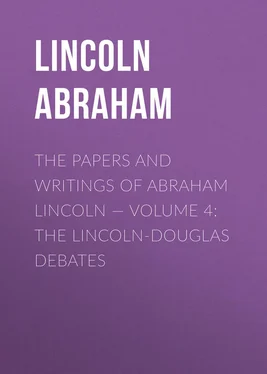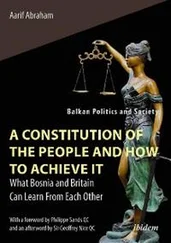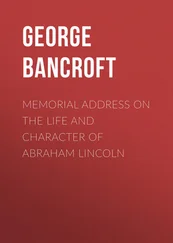Abraham Lincoln - The Papers And Writings Of Abraham Lincoln — Volume 4 - The Lincoln-Douglas Debates
Здесь есть возможность читать онлайн «Abraham Lincoln - The Papers And Writings Of Abraham Lincoln — Volume 4 - The Lincoln-Douglas Debates» — ознакомительный отрывок электронной книги совершенно бесплатно, а после прочтения отрывка купить полную версию. В некоторых случаях можно слушать аудио, скачать через торрент в формате fb2 и присутствует краткое содержание. Жанр: foreign_antique, foreign_prose, на английском языке. Описание произведения, (предисловие) а так же отзывы посетителей доступны на портале библиотеки ЛибКат.
- Название:The Papers And Writings Of Abraham Lincoln — Volume 4: The Lincoln-Douglas Debates
- Автор:
- Жанр:
- Год:неизвестен
- ISBN:нет данных
- Рейтинг книги:3 / 5. Голосов: 1
-
Избранное:Добавить в избранное
- Отзывы:
-
Ваша оценка:
- 60
- 1
- 2
- 3
- 4
- 5
The Papers And Writings Of Abraham Lincoln — Volume 4: The Lincoln-Douglas Debates: краткое содержание, описание и аннотация
Предлагаем к чтению аннотацию, описание, краткое содержание или предисловие (зависит от того, что написал сам автор книги «The Papers And Writings Of Abraham Lincoln — Volume 4: The Lincoln-Douglas Debates»). Если вы не нашли необходимую информацию о книге — напишите в комментариях, мы постараемся отыскать её.
The Papers And Writings Of Abraham Lincoln — Volume 4: The Lincoln-Douglas Debates — читать онлайн ознакомительный отрывок
Ниже представлен текст книги, разбитый по страницам. Система сохранения места последней прочитанной страницы, позволяет с удобством читать онлайн бесплатно книгу «The Papers And Writings Of Abraham Lincoln — Volume 4: The Lincoln-Douglas Debates», без необходимости каждый раз заново искать на чём Вы остановились. Поставьте закладку, и сможете в любой момент перейти на страницу, на которой закончили чтение.
Интервал:
Закладка:
I propose to examine the points in Judge Douglas's speech in which he attempts to answer that speech of Judge Trumbull's. When you come to examine Judge Douglas's speech, you will find that the first point he makes is:
"Suppose it were true that there was such a change in the bill, and that I struck it out, — is that a proof of a plot to force a constitution upon them against their will?"
His striking out such a provision, if there was such a one in the bill, he argues, does not establish the proof that it was stricken out for the purpose of robbing the people of that right. I would say, in the first place, that that would be a most manifest reason for it. It is true, as Judge Douglas states, that many Territorial bills have passed without having such a provision in them. I believe it is true, though I am not certain, that in some instances constitutions framed under such bills have been submitted to a vote of the people with the law silent upon the subject; but it does not appear that they once had their enabling acts framed with an express provision for submitting the constitution to be framed to a vote of the people, then that they were stricken out when Congress did not mean to alter the effect of the law. That there have been bills which never had the provision in, I do not question; but when was that provision taken out of one that it was in? More especially does the evidence tend to prove the proposition that Trumbull advanced, when we remember that the provision was stricken out of the bill almost simultaneously with the time that Bigler says there was a conference among certain senators, and in which it was agreed that a bill should be passed leaving that out. Judge Douglas, in answering Trumbull, omits to attend to the testimony of Bigler, that there was a meeting in which it was agreed they should so frame the bill that there should be no submission of the constitution to a vote of the people. The Judge does not notice this part of it. If you take this as one piece of evidence, and then ascertain that simultaneously Judge Douglas struck out a provision that did require it to be submitted, and put the two together, I think it will make a pretty fair show of proof that Judge Douglas did, as Trumbull says, enter into a plot to put in force a constitution for Kansas, without giving the people any opportunity of voting upon it.
But I must hurry on. The next proposition that Judge Douglas puts is this:
"But upon examination it turns out that the Toombs bill never did contain a clause requiring the constitution to be submitted."
This is a mere question of fact, and can be determined by evidence. I only want to ask this question: Why did not Judge Douglas say that these words were not stricken out of the Toomb's bill, or this bill from which it is alleged the provision was stricken out, — a bill which goes by the name of Toomb's, because he originally brought it forward? I ask why, if the Judge wanted to make a direct issue with Trumbull, did he not take the exact proposition Trumbull made in his speech, and say it was not stricken out? Trumbull has given the exact words that he says were in the Toomb's bill, and he alleges that when the bill came back, they were stricken out. Judge Douglas does not say that the words which Trumbull says were stricken out were not so stricken out, but he says there was no provision in the Toomb's bill to submit the constitution to a vote of the people. We see at once that he is merely making an issue upon the meaning of the words. He has not undertaken to say that Trumbull tells a lie about these words being stricken out, but he is really, when pushed up to it, only taking an issue upon the meaning of the words. Now, then, if there be any issue upon the meaning of the words, or if there be upon the question of fact as to whether these words were stricken out, I have before me what I suppose to be a genuine copy of the Toomb's bill, in which it can be shown that the words Trumbull says were in it were, in fact, originally there. If there be any dispute upon the fact, I have got the documents here to show they were there. If there be any controversy upon the sense of the words, — whether these words which were stricken out really constituted a provision for submitting the matter to a vote of the people, — as that is a matter of argument, I think I may as well use Trumbull's own argument. He says that the proposition is in these words:
"That the following propositions be and the same are hereby offered to the said Convention of the people of Kansas when formed, for their free acceptance or rejection; which, if accepted by the Convention and ratified by the people at the election for the adoption of the constitution, shall be obligatory upon the United States and the said State of Kansas."
Now, Trumbull alleges that these last words were stricken out of the bill when it came back, and he says this was a provision for submitting the constitution to a vote of the people; and his argument is this:
"Would it have been possible to ratify the land propositions at the election for the adoption of the constitution, unless such an election was to be held?"
This is Trumbull's argument. Now, Judge Douglas does not meet the charge at all, but he stands up and says there was no such proposition in that bill for submitting the constitution to be framed to a vote of the people. Trumbull admits that the language is not a direct provision for submitting it, but it is a provision necessarily implied from another provision. He asks you how it is possible to ratify the land proposition at the election for the adoption of the constitution, if there was no election to be held for the adoption of the constitution. And he goes on to show that it is not any less a law because the provision is put in that indirect shape than it would be if it were put directly. But I presume I have said enough to draw attention to this point, and I pass it by also.
Another one of the points that Judge Douglas makes upon Trumbull, and at very great length, is, that Trumbull, while the bill was pending, said in a speech in the Senate that he supposed the constitution to be made would have to be submitted to the people. He asks, if Trumbull thought so then, what ground is there for anybody thinking otherwise now? Fellow-citizens, this much may be said in reply: That bill had been in the hands of a party to which Trumbull did not belong. It had been in the hands of the committee at the head of which Judge Douglas stood. Trumbull perhaps had a printed copy of the original Toomb's bill. I have not the evidence on that point except a sort of inference I draw from the general course of business there. What alterations, or what provisions in the way of altering, were going on in committee, Trumbull had no means of knowing, until the altered bill was reported back. Soon afterwards, when it was reported back, there was a discussion over it, and perhaps Trumbull in reading it hastily in the altered form did not perceive all the bearings of the alterations. He was hastily borne into the debate, and it does not follow that because there was something in it Trumbull did not perceive, that something did not exist. More than this, is it true that what Trumbull did can have any effect on what Douglas did? Suppose Trumbull had been in the plot with these other men, would that let Douglas out of it? Would it exonerate Douglas that Trumbull did n't then perceive he was in the plot? He also asks the question: Why did n't Trumbull propose to amend the bill, if he thought it needed any amendment? Why, I believe that everything Judge Trumbull had proposed, particularly in connection with this question of Kansas and Nebraska, since he had been on the floor of the Senate, had been promptly voted down by Judge Douglas and his friends. He had no promise that an amendment offered by him to anything on this subject would receive the slightest consideration. Judge Trumbull did bring to the notice of the Senate at that time the fact that there was no provision for submitting the constitution about to be made for the people of Kansas to a vote of the people. I believe I may venture to say that Judge Douglas made some reply to this speech of Judge Trumbull's, but he never noticed that part of it at all. And so the thing passed by. I think, then, the fact that Judge Trumbull offered no amendment does not throw much blame upon him; and if it did, it does not reach the question of fact as to what Judge Douglas was doing. I repeat, that if Trumbull had himself been in the plot, it would not at all relieve the others who were in it from blame. If I should be indicted for murder, and upon the trial it should be discovered that I had been implicated in that murder, but that the prosecuting witness was guilty too, that would not at all touch the question of my crime. It would be no relief to my neck that they discovered this other man who charged the crime upon me to be guilty too.
Читать дальшеИнтервал:
Закладка:
Похожие книги на «The Papers And Writings Of Abraham Lincoln — Volume 4: The Lincoln-Douglas Debates»
Представляем Вашему вниманию похожие книги на «The Papers And Writings Of Abraham Lincoln — Volume 4: The Lincoln-Douglas Debates» списком для выбора. Мы отобрали схожую по названию и смыслу литературу в надежде предоставить читателям больше вариантов отыскать новые, интересные, ещё непрочитанные произведения.
Обсуждение, отзывы о книге «The Papers And Writings Of Abraham Lincoln — Volume 4: The Lincoln-Douglas Debates» и просто собственные мнения читателей. Оставьте ваши комментарии, напишите, что Вы думаете о произведении, его смысле или главных героях. Укажите что конкретно понравилось, а что нет, и почему Вы так считаете.












